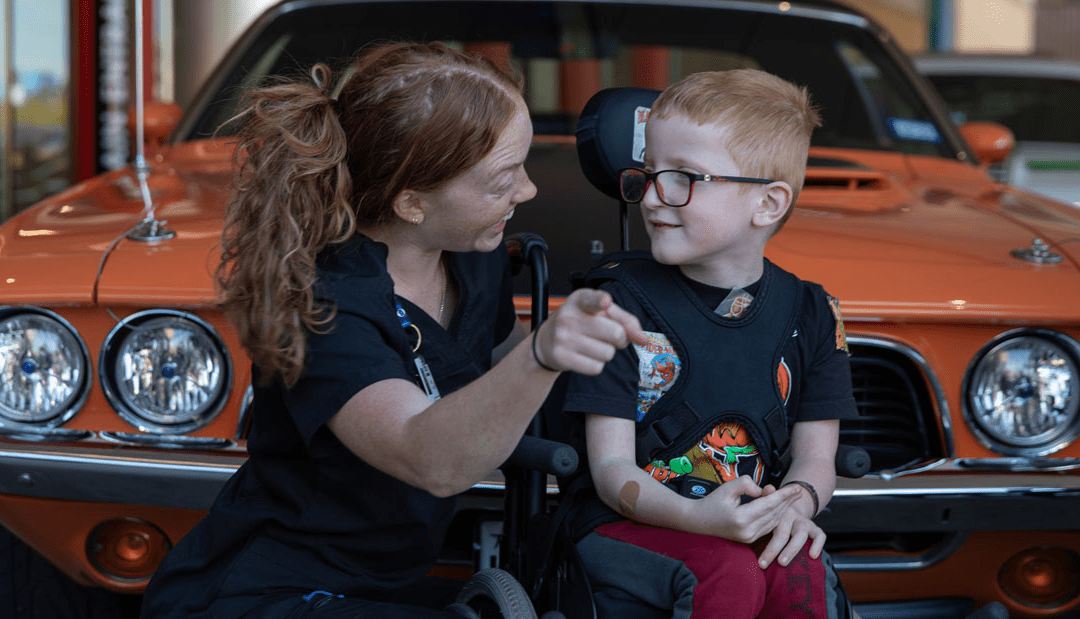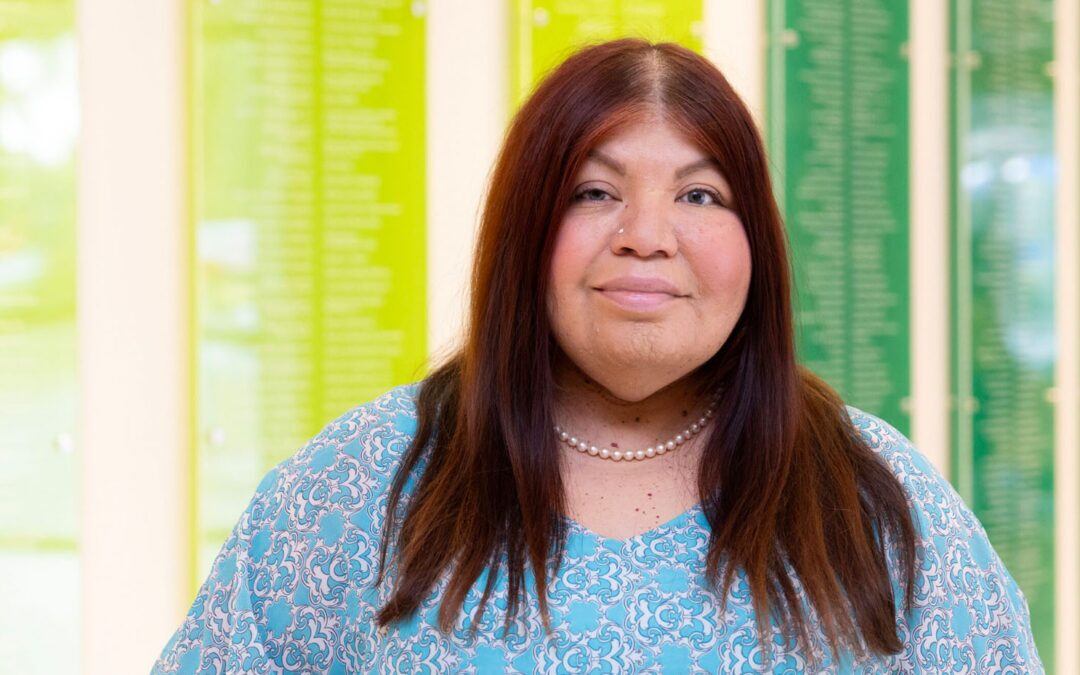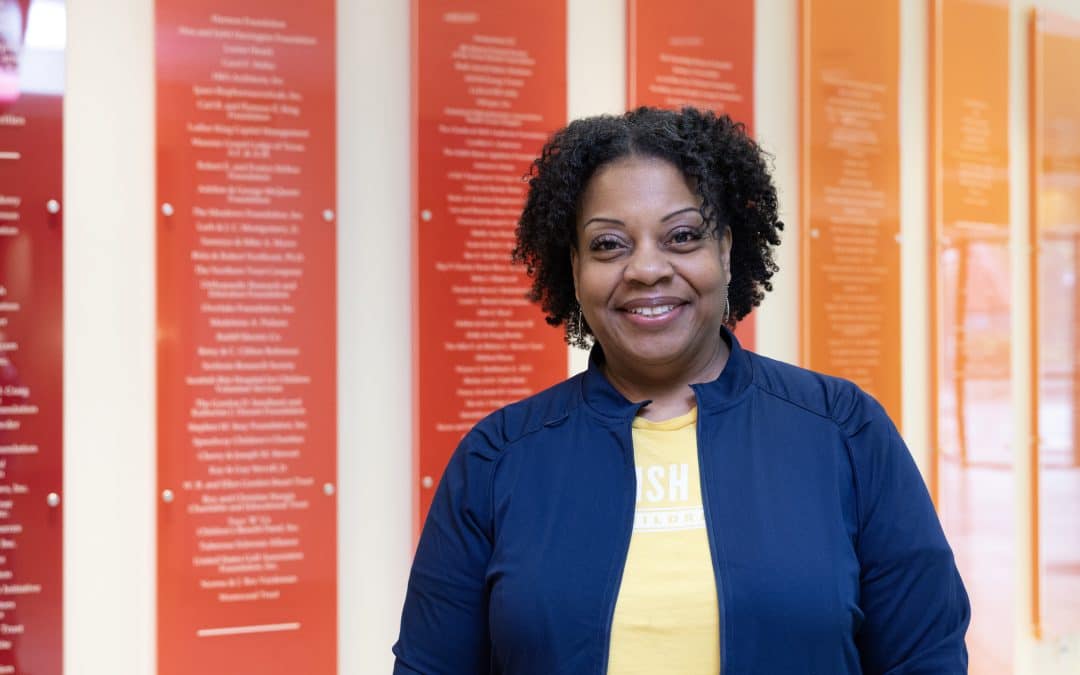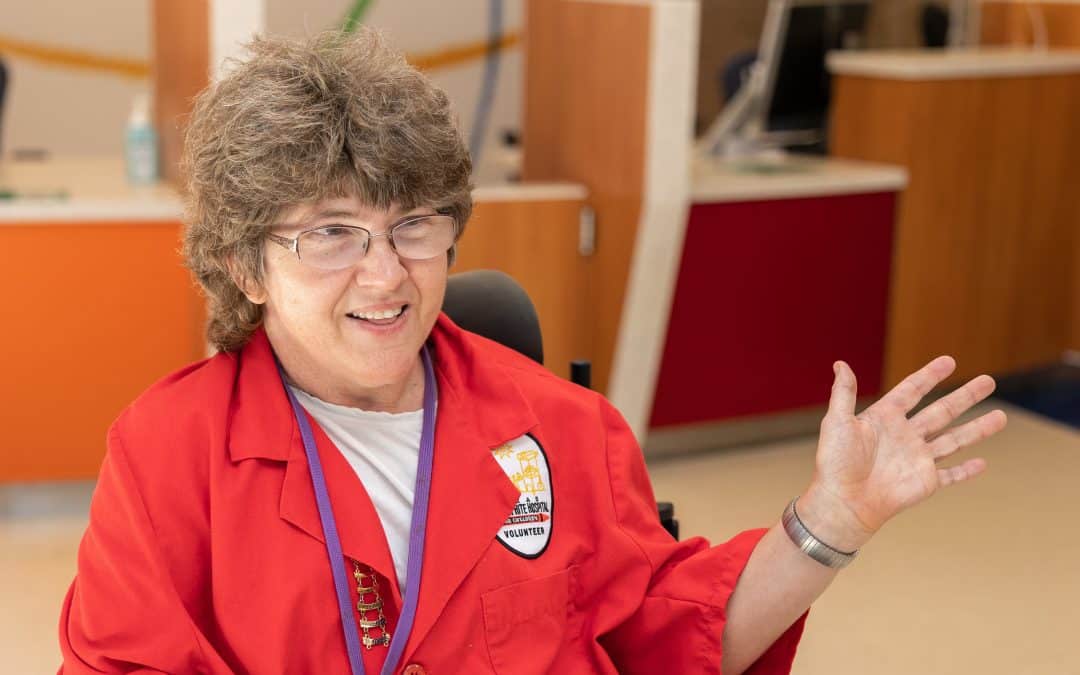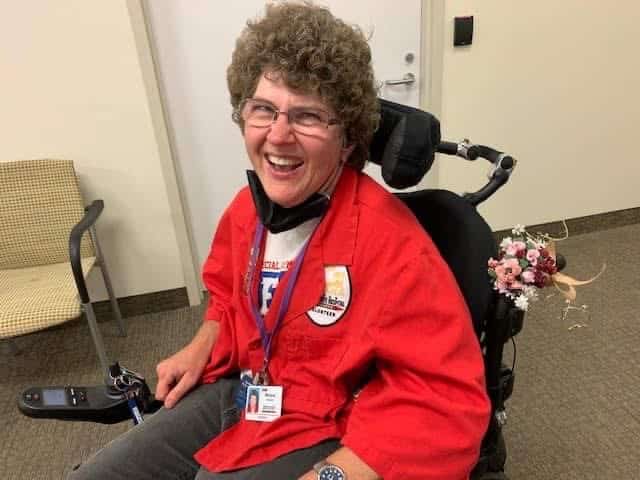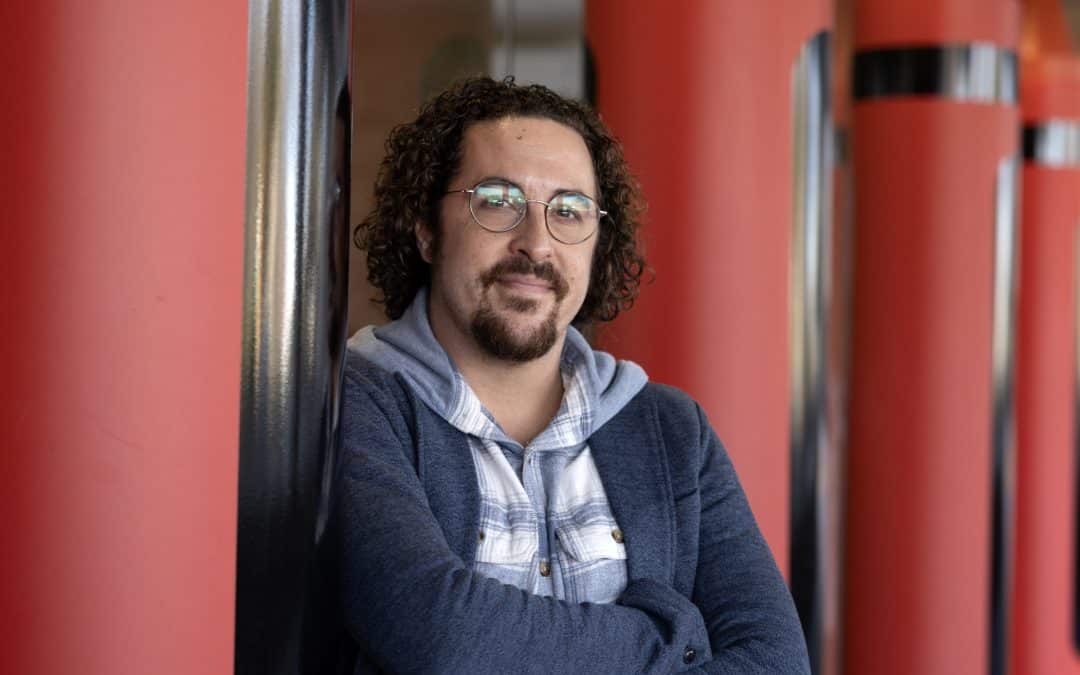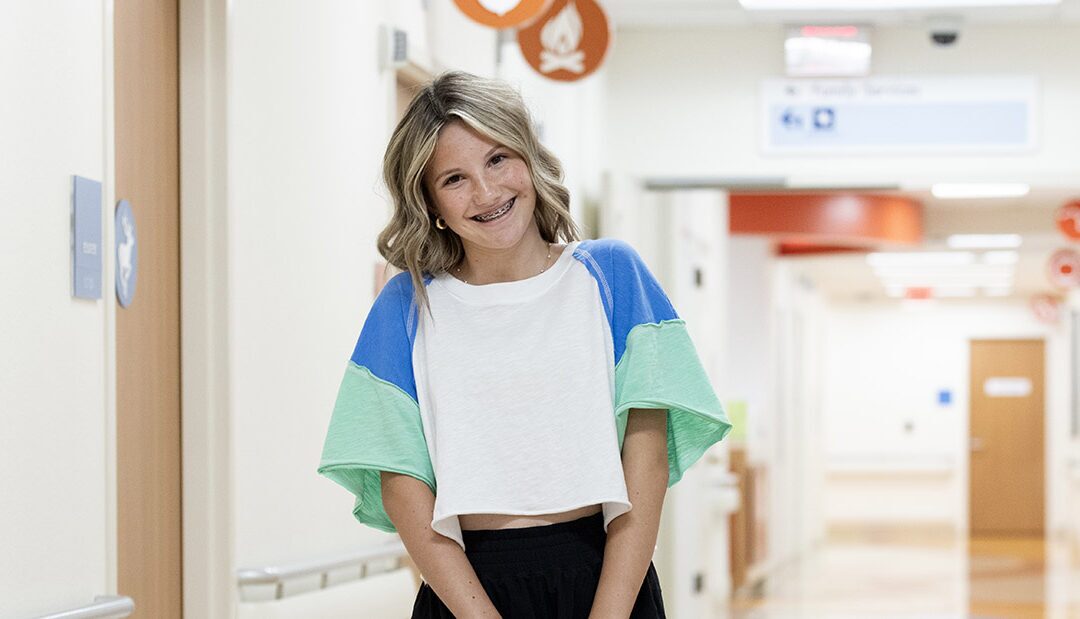
Kyler Finds Her Own Rhythm With Cerebral Palsy
As a member of her school’s drill team, Kyler has an unmatched love for dance that shines. Before she could learn her first routine, the 12-year-old had to overcome challenges that made moving around difficult.
When Kyler took her first steps as a toddler, her parents noticed her walking pattern, or gait, was unusual. It prompted her family to search for answers in their area. Eventually, Kyler underwent surgery to help improve her gait and release muscle tension. The issue returned when Kyler turned 6 due to a large growth spurt. To find answers, Kyler’s pediatrician referred her to Scottish Rite for Children.
“When we came to Scottish Rite for the first time, I remember thinking, ‘Oh my, this is different,’” says Chelsea, Kyler’s mother. “I can’t help but think of how blessed we are to be able to come to a place like this.”
Initially, Kyler saw a range of pediatric orthopedic experts to address her gait. She and her family met with Scottish Rite’s Neurology & Rehabilitation Medicine team for further testing. Kyler was diagnosed with cerebral palsy (CP), which is one of the most common childhood disorders that affects muscles and movement. Kyler’s form of CP causes weakness in her muscles on the right side of her body, known as right hemiparesis, which affected her gait.
“Honestly, we rely on our team at Scottish Rite in regard to Kyler’s CP and how to manage it,” Chelsea says. “They are always here for Kyler. If there is something going on, I know I can call our team at any time about anything.”
At the forefront of Kyler’s care team is pediatric physical medicine & rehabilitation physician Fabiola I. Reyes, M.D. Dr. Reyes monitors Kyler’s condition for muscle tightness and administers injections to relax Kyler’s muscles and relieve pain. Additionally, Kyler wears a custom foot orthosis on her right foot that helps her alignment and stability when walking.
“Kyler enjoys getting to visit with her CP team,” Chelsea says. “They have all gotten to know her so well and value her input on her treatment.”
Under Dr. Reyes’ care, Kyler’s range of motion and alignment when walking has improved. Now, Kyler can focus on what she loves most — dancing, shopping and spending time with her friends and family.
“Yes, CP is a lifelong condition, but at Scottish Rite, your team is there for you through it all,” Chelsea says. “With the right guidance and plan of care, the pressure and uncertainty you feel as a family can be lifted at Scottish Rite. The staff is truly exceptional, phenomenal and one-of-a-kind!”
Do you have a story? We want to hear it! Share your story with us.


